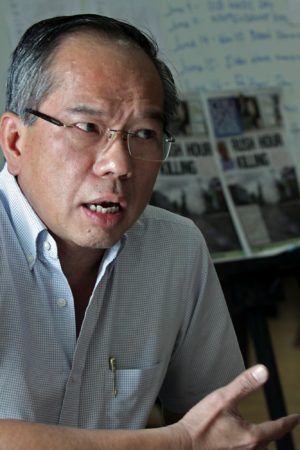Exec: Biz competitiveness to temper inflation rate

TAN
AMID a 39-month high inflation rate of four percent last January, business leaders in Cebu remain confident that this will soon stabilize.
And one important factor in normalizing the rate of inflation in the country is business competitiveness, according to Philip Tan, past president of the Mandaue Chamber of Commerce and Industry (MCCI).
He said that with the implementation of the new Tax Reform for Acceleration and Inclusion (TRAIN) law, where there are higher or new excise taxes on some products including oil products and sweetened beverage, inflation is expected as an initial result.
“How it will temper the inflation rate is the competitiveness of business — their product and service. Taxes are just a component of your costing,” Tan told Cebu Daily News.
“It will be tempered as to how businesses are operating under a climate of competitiveness because the price of your products would decrease if you want consumers to buy from you,” he added.
In an Inquirer report, data from the Philippine Statistics Authority (PSA) showed that inflation rose to four percent year-on-year last January — the fastest rate of increase on the prices of basic goods since the 4.3 percent posted in October 2014.
The rate was only 3.3 last December 2017.
The same report quoted Bangko Sentral ng Pilipinas (BSP) Gov. Nestor Espenilla Jr. saying that the inflation rate was “expected” even as he said that it was “at the top end” of their forecasts.
Inflation is the rate at which the prices of goods and services are rising. Consequently due to this, the purchasing power of the currency is also falling.
For Tan, he said that a free economy ensures that inflation will be stabilized soon enough.

NG
“It is temporary. It’s not long term. It’s just an initial impact. It might not go back to the original, but it will not be as high as initially predicted. The barometer there is competitiveness,” he said.
The BSP earlier projected an inflation rate of between 3.5 percent to 4 percent for January this year.
But for Cebu Chamber of Commerce and Industry (CCCI) President Melanie Ng, the government is expected to monitor the effects of this high inflation rate.
“We believe the government continues to remain vigilant against the risks of inflation like monitoring and maintaining price stability that is conducive to economic growth and viability,” she said.
At the same time, Ng said there is also a need for increased income among consumers to make sure that they are able to cope with the effects of inflation, whether long-term or temporary.
“We have to cushion inflation with an increase in income. This can only be done if we exert concerted effort to capitalize on business opportunities that can increase economic activity,” Ng said.
Under the TRAIN law, employees with an annual salary of P250,000 or less will not have to pay personal income tax to the government anymore, which means they will have higher take home pay.
However, the same law counters this loss in taxes by imposing new and higher excise taxes on other products like oil products, sweetened beverage, tobacco, cosmetic procedures, and new vehicles.
Disclaimer: The comments uploaded on this site do not necessarily represent or reflect the views of management and owner of Cebudailynews. We reserve the right to exclude comments that we deem to be inconsistent with our editorial standards.
